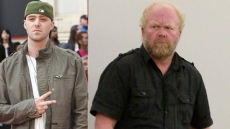OTTAWA — A legal fight between Internet giant Google and a British Columbia technology company unfolds today in the Supreme Court of Canada, where they will duel over competing free speech and copyright infringement issues.
At issue is whether Canadian courts have the jurisdiction to make sweeping orders to block access to content on the Internet beyond Canada's borders.
Google is challenging a 2015 ruling by the British Columbia Court of Appeal that ordered it to stop indexing or referencing websites linked to a company called Datalink Technologies Gateways.
The B.C. appeal court granted that injunction at the request of Equustek Solutions Inc., which won a judgment against Datalink for essentially stealing, copying and reselling industrial network interface hardware that it created.
Equustek wanted to stop Datalink from selling the hardware through various websites and turned to Google to shut down references to them.
Initially, Google removed more than 300 URLs from search results on Google.ca, but more kept popping up, so Equustek sought — and won — the broader injunction that ordered Google to impose a worldwide ban.
Google fought back against the "worldwide order" arguing that Canadian courts don't have the legal authority to impose such an injunction.

Its written argument to the Supreme Court calls the injunction "an improper and unprecedented extension of Canadian jurisprudence."
Equustek's lawyers argue in their written submission that there is no issue of freedom of expression at play in the case. The only purpose of the offending websites "is to generate profit for the outlaw Datalink defendants and their collaborators by selling illegal products in violation of multiple court orders."
The company's lawyers say their clients created "complex industrial equipment."
"The defendants are not selling counterfeit handbags or watches on street corners," they argue.
"If the court is powerless to act in the face of this kind of conduct, then we no longer live in a world ruled by law."
Equustek's lawyers did not respond to a request for comment.
Google lawyer David Price said if his client loses, it could lead to a proliferation of removal orders across the globe.
"That may embolden countries whose perspectives on free expression may not align with Canada," he said in an interview from London.
That view is shared by the New York-based Human Rights Watch, which has been granted intervener status by the Supreme Court.
It argues that "an injunction issued by a court in one country which restricts freedom of expression in another country will rarely, if ever, be consistent with international human rights law."
Human Rights Watch is joining a coalition of civil liberties groups, as well as 15 news organizations including Dow Jones, the Newspaper Association of America and The Associated Press. They argue the Canadian courts are overextending themselves and threatening free speech across the globe.

Equustek has the support of a coalition of Canadian publishers, authors, composers and filmmakers, as well as an international federation of film producers. They take exception with Google's argument that it cannot be "deputized by a court to deindex a site."
The issues in the case are part of a growing global trend of "intermediary liability" where companies such as Google are being pressed to take down harmful or illegal content, said Fen Hampson, an Canadian foreign affairs expert and author of "Look Who's Watching," a new book on the evolution of the Internet.
The European Court of Justice has upheld the "right to be forgotten," which upholds the removal of defamatory or inaccurate personal information if it comes up in a search engine such as Google, he said.
"In this case, Google (the intermediary) was asked by the B.C. court to deal with a copyright infringement issue, but the concept can be applied to other issues such as trademark disputes, defamation, hate speech, censorship or the protection of privacy."





